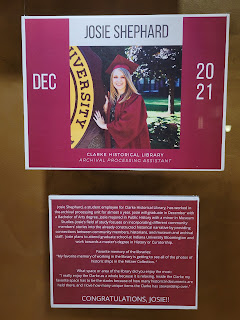last day at work in 2021

Today is the last day I work this year. My grades are in, my to do lists for next year perpared, everything is interfiled or shelved, the processing room and my office are vacuumed and wiped down, I have students lined up to work or intern or volunteer, and supplies and collections on hand. I think it's going to be a rough start of term with Omicron, so I am as prepared as I can be with backup plans. I wish everyone a Merry Christmas and a Happy New Year.




